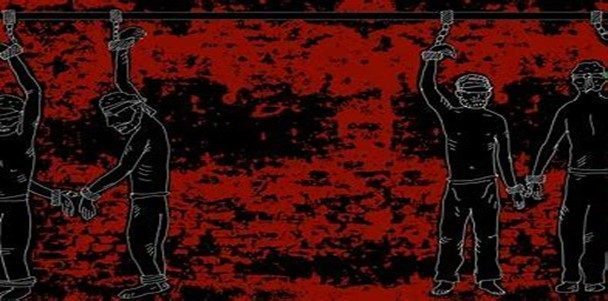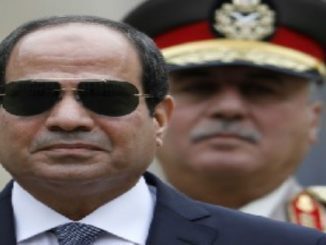
The Human Rights Watch organization states in a report that in response to torture complaints, the Egyptian regime punishes victims of torture, not the police officers that practice it, where “trial of alleged torture victims displays ingrained impunity”.
Amr Magdi, HRW senior researcher and head of MENA division, says that Egypt’s government has reached a new low around torture”.
After the Guardian reported on two leaked videos last January showing detainees in a Cairo police station with wounds that appeared to be the result of torture, Egyptian authorities failed to carry out a credible investigation into the abuse.
Instead, Egypt’s Supreme State Security top prosecutor, Khaled Diaa, referred most of the detainees who appeared in the videos to a mass trial, according to El-Fagr newspaper.
“This is just the latest example of impunity in a country known for endemic torture with a judicial system that looks the other way,” states the Human Rights senior researcher Amr Magdi.
On May 28 the first trial session was held before a terrorism court. The defendants included 18 men and a 17-year-old boy allegedly subject to torture by officers at the Al-Salam First police station where the videos were reportedly recorded in November 2021, as reported by the Egyptian Initiative for Personal Rights (EIPR).
According to the court referral order, they face charges of “joining a terrorist group,” “financing that group,” and “spreading false news.” All the charges are based on allegations by National Security Agency officers that the videos were part of a Muslim Brotherhood conspiracy to undermine the police and public interests.
Also charged were three men and a woman whose “complicity” included providing the phone used to record videos of the abused men, who they knew, and then uploading the videos to YouTube.
On January 24, the same day the Guardian published the leaked videos, unnamed security officials told Egyptian media, without investigation, that the videos were fabricated, as reported by Egyptian Shorouk newspaper.
On February 15, Egypt’s Office of the Prosecutor General issued a statement claiming that the allegations of torture accompanying the leaked recordings were false.
It said that the police – the very group alleged as perpetrators in the video – investigated and concluded that the men injured themselves with a “metal coin” and had recorded the video to “destabilize” the country and “spread chaos.” Prosecutors ordered the men in the video and their acquaintances jailed pending trial, while the alleged perpetrators remained free.
“The case shows that Egypt needs an independent mechanism, preferably with an international dimension, to address endemic torture in detention, and hold accountable those who perpetrate or cover up torture,” the HRW report stated, adding:
“The state response to the shocking videos speaks volumes regarding the absence of political will to address security forces abuses in Egypt’s Abdel Fattah al-Sisi’s government, which instead punishes victims and whistleblowers”.
Since July 2013, when Egypt’s military overthrew the country’s first freely elected president, torture has returned as the calling card of the security services, and the lack of punishment for its routine practice has helped define the authoritarianism of President Abdel Fattah al-Sisi’s administration.
Al-Sisi’s pursuit of political stability at any cost has granted the country’s chief domestic security institution, the Interior Ministry, a free hand, perpetuating the same abuses that fueled the 2011 uprising.
The Interior Ministry’s regular police and its National Security Agency have used widespread arbitrary arrests, enforced disappearances, and torture against perceived dissidents, many of them alleged members or sympathizers of the Muslim Brotherhood, al-Sisi’s primary political opposition.
The Egyptian Coordination for Rights and Freedoms (ECRF), an independent human rights group, has identified 30 people who died from torture while being held in police stations and other Interior Ministry detention sites between August 2013 and December 2015. In 2016, the ECRF reported that its lawyers received 830 torture complaints, and that another 14 people had died from torture in custody.
This report, based on interviews with 19 former detainees and the family of a 20th detainee who were tortured between 2014 and 2016, shows how police and officers of the National Security Agency regularly use torture during their investigations to force perceived dissidents to confess or divulge information, or to punish them.
“Failing a serious effort by the Sisi administration to confront the torture epidemic, we urge UN member states to investigate and, if appropriate, prosecute in their own courts Egyptian security officers and other officials accused of committing torture or allowing it to occur, under the principle of universal jurisdiction,” an HRW report stated.



